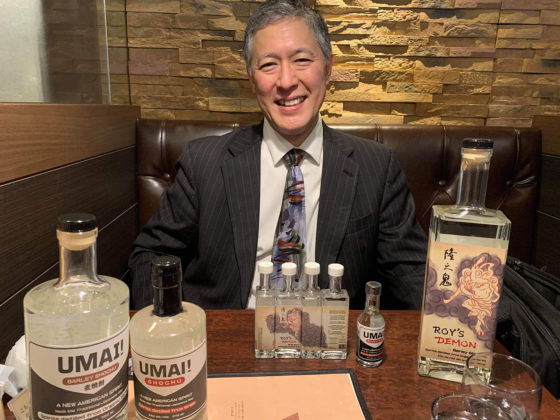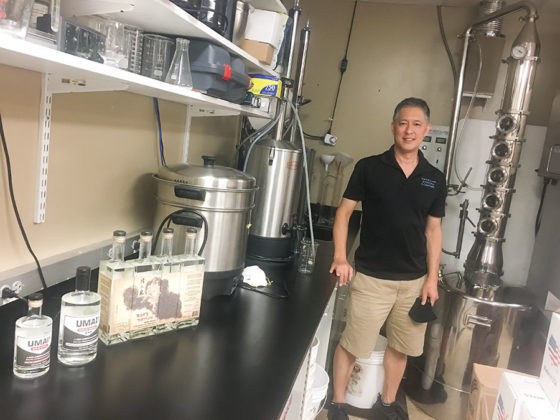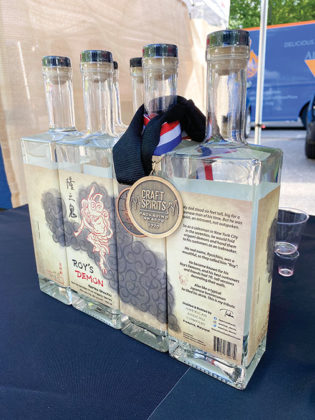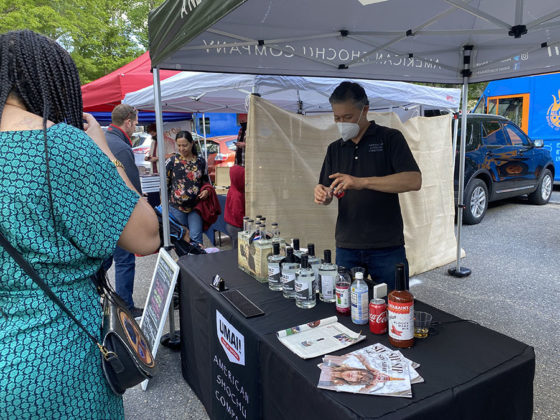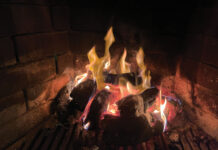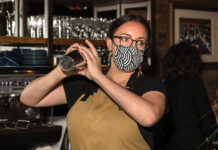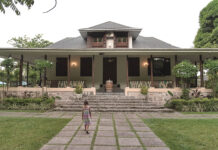For Americans, and Japanese who live in the US, Maryland’s Takatsugu Amano distills the rice spirit that is more popular in Japan than tequila is in Mexico
Why don’t you know your Shochu? On a per capita consumption basis, shochu is more popular in Japan than is tequila in Mexico. Total Japanese domestic consumption eclipses other notable native drinks of sake and whiskey.
Originating on Japan’s main island of Kyushu in the 16th century, shochu was initially a purely rice single-distillate culled from a koji (species luchuensis of the Aspergillus genus bacteria and similar to that used to create sake) starch-to-sugar transformation that is simultaneously subjected to Saccharomyces cerevisiae for its sugar-to-alcohol fermentation. Since its inception shochu has grown to include additional local base ingredients such as the grains barley and buckwheat along with sweet potato, pumpkin, and even chestnut along with a myriad of base ingredients used more for flavor than for their fermentable sugars.
Unrecognized by the TTB as a unique category, its penetration of the US market is relegated almost exclusively to the Japanese expat community. And due to the dominance of the simply brewed sake, also sold (though to a lesser degree) in Japanese restaurants. Due to the increasing interest in craft distillates of all types, that’s slowly shifting with a very limited expansion of imported brands finding their way across the Pacific Ocean to our shores.
Japanese Spirit Secrets Revealed
However, one man’s dedication and vision has led to the first and only expression made in North America. While working a decade in Tokyo half the month with the other half spent at his Silver Spring Maryland home, Takatsugu Amano in 2013 cold-called Tokyo’s Japanese Brewing Society, the technical organization to which all sake and shochu producers belong, seeking to acquire a copy of the book it publishes detailing the basic information passed through the generations in pursuing this craft, Authentic Shochu Manufacturing Techniques.
Though born in Japan Amano had long been a US resident and citizen, so as a relative outsider incurred some unexpected xenophobia in being told that that “we don’t give this book out to just anybody — who are you?” He explained that he was the president of a company based in Japan helping other US and Japanese companies bridge their respective cultures in helping US companies (primarily biotech) sell into Japan and then to launch their Japanese subsidiaries.
Amano was successful in earning the trust of this ultra-traditional guild, and today cultivates his own barley-grown koji with reverse osmosis water that’s been sourced from a local natural foods store, stimulating parallel fermentations of the Aspergillus and Sacchromyces lasting 2-6 weeks with the same water used to first rinse the un-malted barley both for koji cultivation, then for brewing. After distilling, the single-run 94% spirit base is cut to 40% or 24%. This double-edged fermentation requires constant monitoring in order to ensure the proper levels of sugar, starch, and alcohol before distillation.
$40 for Everyone, $100 for Shochu’s Elite
Co-founded with his wife Lynn, all American Shochu Company’s products are fashioned from 100% certified organic California barley. The company’s main product is a $40 ‘UMAI! Shochu’ bottled at 24% (the standard ABV level for shochu). Amano’s ‘Roy’s Demon Organic Barley Shochu’ retails at $60. Roy’s Demon undergoes up to ten distillation cuts during distillation. The company also offers a 40% First Edition Private Reserve at $100 retail.
To date the 2,100 liter annual production ran through a couple of 5-gallon stills contained in a 200 sq. ft. room within a small office building on the outskirts of Frederick Maryland, with a 53-gallon Mile-Hi still in the wings for expansion of production.
Having first commercialized his shochu in 2018, Amano was proud to clear $750 in sales when selling at a weekly farmer’s market. While he has now expanded distribution through many retail stores in Maryland and DC, American Shochu Company’s (ASC) shochu is also distributed in New York by Mutual Trading Co., the state’s dominant distributor for all Japanese alcohol beverages. ASC recently entered into a partnership with a fundraising and marketing firm and will be raising investor funds to relocate to a full distillery and launch a line of RTD canned cocktails — a very popular niche in Japan which Amano’s keen to extend into the US.
Having taken his products to Japan twice to share with his contemporaries, the chairman of the Aja Pan Brewing Society in 2017 gave him props by telling him that “you have shochu, now sell it in the US”, and next in 2020 garnering “how do you make it so smooth?” adding that it possesses a true barley character hitherto unknown in Japan.
Amano’s secret to comparative shochu smoothness? Amano claims it’s all in the heads. To avoid what they consider “waste,” Amano’s Japanese counterparts ubiquitously keep the heads. Amano cuts them. Shochu heads’ lighter alcohols result in a characteristic “burn” that Japanese assume is endemic to the spirit. Not so, says Amano. The result? American Shochu Company’s claim to being “the cleanest shochu in the world.”
— Since 1986 David Furer has performed many roles in the alcohol beverage industry–lecturer and teacher to both pros and consumers, consultant to numerous wine regions and countries, event organizer and host, retail buyer, sommelier and restaurant manager, and wine/spirits/beer writer/author/judge. David holds an Advanced level certification from the Court of Master Sommeliers and Certified Wine Educator from the Society of Wine Educators, and has worked at five German wineries. He has lectured at University of Chicago, Oxford and Cambridge.

